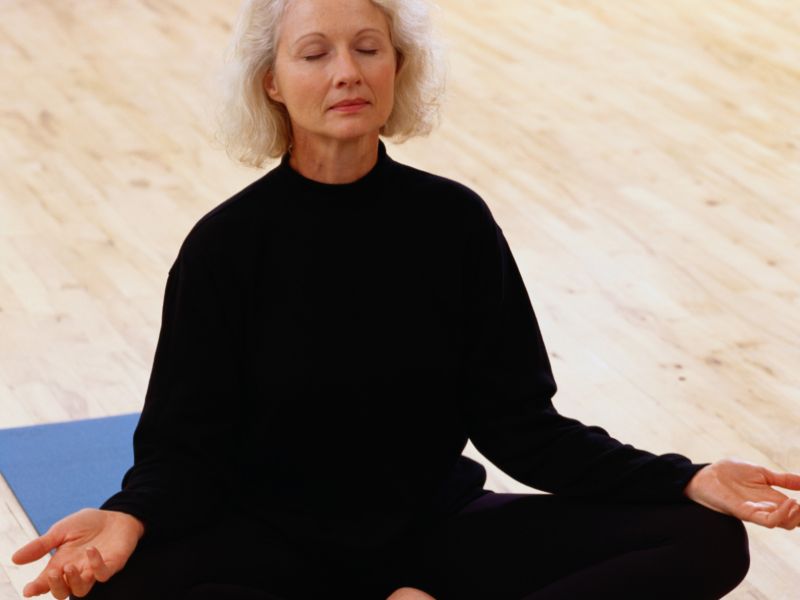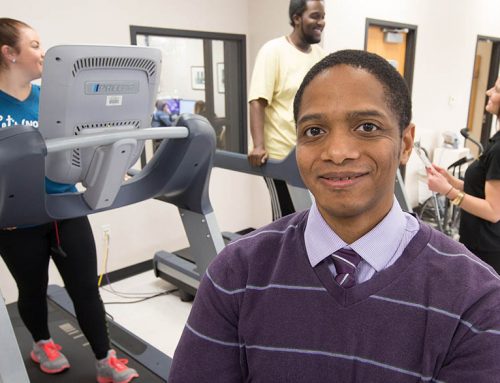
WEDNESDAY, Aug. 9, 2017 (HealthDay News) — Older women who practice yoga may have greater “thickness” in areas of the brain involved in memory and attention, a small study suggests.
Researchers found that even compared with other healthy, active women their age, yoga practitioners typically had greater cortical thickness in the brain’s left prefrontal cortex.
That could be good news because, as the researchers pointed out, cognitive impairment from aging is usually associated with less volume in cortical areas of the brain associated with attention tasks, and decreases in memory.
But experts said it’s not clear what conclusions can be drawn from the study’s findings.
The findings are based on one-time brain scans of fewer than 50 women — and they do not prove that yoga, itself, altered anyone’s brain structure, according to senior researcher Elisa Kozasa.
The brain differences might have existed before the women ever tried yoga, said Kozasa, a researcher at Hospital Israelita Albert Einstein in Sao Paulo, Brazil.
But the study does add to a bigger body of evidence on yoga and brain function, said Dr. Helen Lavretsky, a researcher who was not involved in the work.
“This contributes to the evidence that yoga practice has neuroplastic effects on the brain that may translate into other health benefits — like better mood and cognition,” said Lavretsky, a professor-in-residence of psychiatry at the UCLA Geffen School of Medicine.
“Neuroplasticity” refers to the brain’s ability to reorganize itself and form new connections among cells over the course of a lifetime.
In her own research, Lavretsky has found some evidence that yoga benefits older adults’ brain function.
In a recent pilot study, her team tested the effects of weekly yoga classes among 25 older adults who were showing early signs of memory problems. The participants were randomly assigned to 12 weeks of yoga — which included some movement, breathing practices and meditation — or 12 weeks of “brain games.”
In the end, both groups were doing a little better on standard memory tests, compared with the study’s outset. But the yoga group showed a bigger change.
According to Lavretsky, it’s possible that yoga benefits the brain over time by easing day-to-day stress. Or, she said, yoga practices might have a more direct effect on “brain fitness.”
Kozasa pointed out that yoga involves a “cognitive component,” where practitioners hone their ability to concentrate while consciously holding poses, performing breathing exercises and meditating.
Her team was interested in whether long-time practitioners actually show a difference in their brain structure.
So they performed brain scans of 42 women age 60 and older. Half of the women regularly practiced yoga — for the past 15 years, on average. The rest were healthy and physically active, but did not practice yoga.
Women in both groups also had similarly high education levels.
“Even with those similarities,” Kozasa said, “the yoga group presented a greater cortical thickness in brain regions involved in executive functions such as attention.”
However, there could be other explanations for the findings, Lavretsky said — such as differences in the two groups’ other lifestyle choices, sleep habits, or perceived stress levels.
Kozasa agreed. What’s needed, she said, is a long-term study that charts brain changes in yoga practitioners and non-practitioners over time.
And while some research suggests that yoga boosts memory and attention, it’s not clear whether the practice can curb older adults’ risk of dementia.
“It is too soon to state that yoga can protect your brain against dementia,” Kozasa stressed.
Still, she said, there’s no reason for older adults to delay trying yoga if they are interested.
“If practiced with an experienced instructor, older adults may get benefits from yoga for their mental and physical health,” Kozasa said.
The findings were published online recently in the journal Frontiers in Aging Neuroscience.
SOURCES: Elisa Kozasa, Ph.D., researcher, Hospital Israelita Albert Einstein, Sao Paulo, Brazil; Helen Lavretsky, M.D., professor-in-residence, psychiatry, Geffen School of Medicine, University of California, Los Angeles; June 2017, Frontiers in Aging Neuroscience, online
News stories are written and provided by HealthDay and do not reflect federal policy, the views of MedlinePlus, the National Library of Medicine, the National Institutes of Health, or the U.S. Department of Health and Human Services.
[the_ad id=”28610″]




Leave a Reply